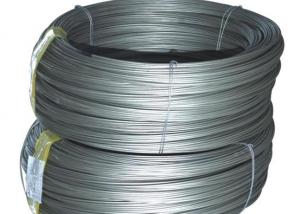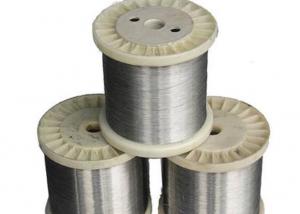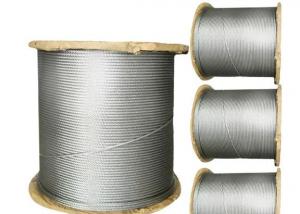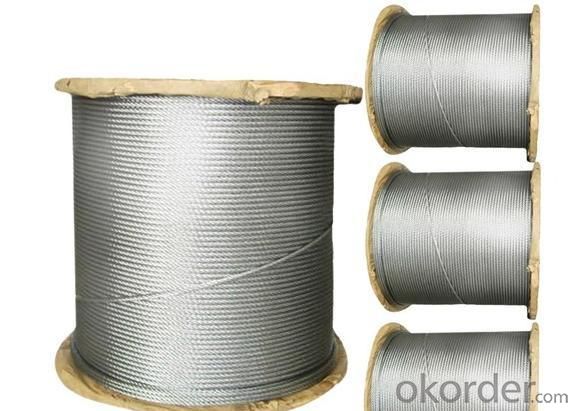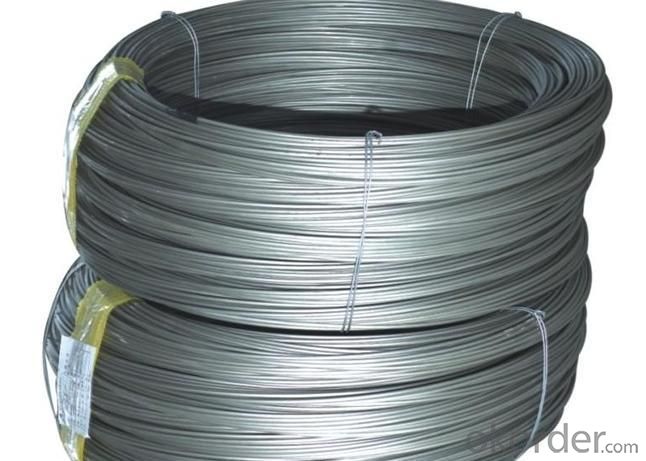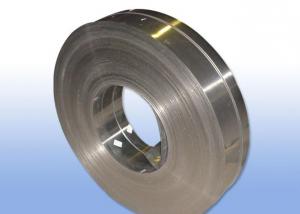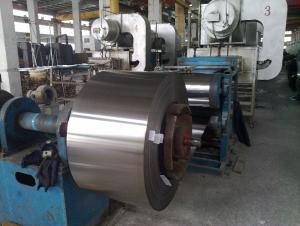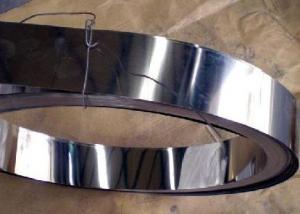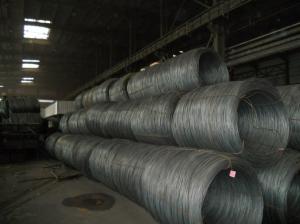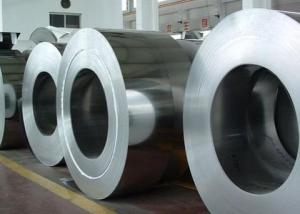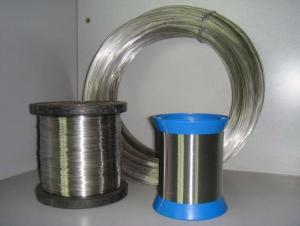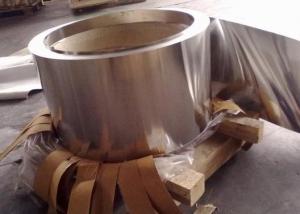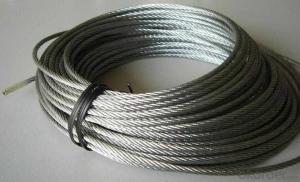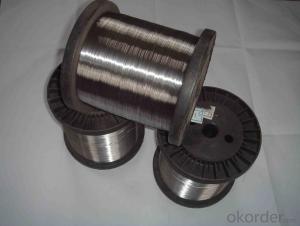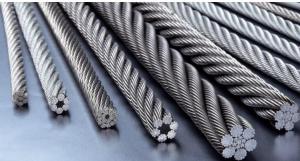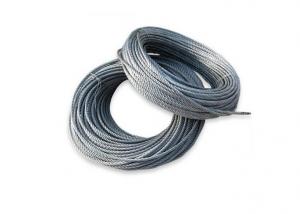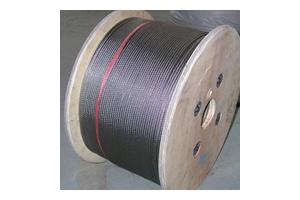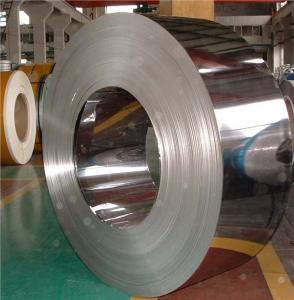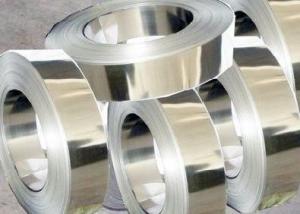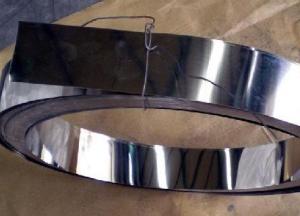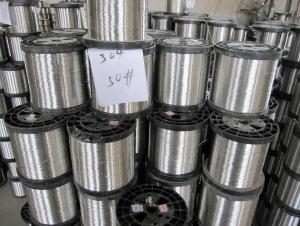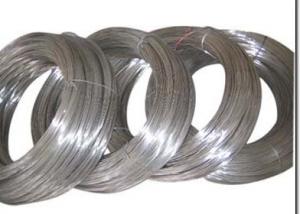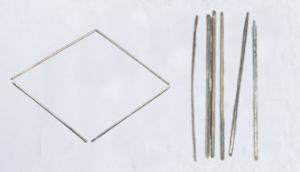Stainless Steel Wire
- Loading Port:
- China Main Port
- Payment Terms:
- TT or LC
- Min Order Qty:
- 1 Ton m.t.
- Supply Capability:
- 2000 Tons Per Month m.t./month
OKorder Service Pledge
OKorder Financial Service
You Might Also Like
Stainless Steel Wire
1.Grade: SS 200,300,400 series
2.Dia: 0.1mm-100mm
3.Length:500m-2000m/Reel
4.Surface: Bright
5.Certificate: Fortune 500, SGS, ISO 9001:2008
6.Test: Salt Spray over200 hours
7.MOQ:500kg
8.Delivery: Within 20 days
9.Packing: Reel, wooden box or according to your requirement
10.Payment terms: China Main Port or CIF ANY PORT
11. Application: Tie wire, pins, lashing, forming wire, filters, gaskets, elevators, safety wire, shaped and flat wire, conveyors, jewelry, springs, brush welding, electrical, wire line, craft and many more applications.
|
Main Grades |
C % |
Si % |
S % |
P % |
Mn % |
Cr % |
Ni % |
Mo % |
Cu % |
|
S30400 |
<0.08 |
<0.75 |
<0.015 |
<0.045 |
<2 |
18.05-19 |
8.01--8.25 |
<0.6 | |
|
304H |
0.04-0.1 |
<0.75 |
<0.015 |
<0.045 |
<2 |
18.05-19 |
8.01--8.25 |
<0.5 | |
|
304Hc1 |
0.03-0.05 |
<0.75 |
<0.015 |
<0.045 |
<2 |
18.05-19 |
8.01-8.25 |
1.2-1.6 | |
|
304Hc |
0.03-0.05 |
<0.75 |
<0.015 |
<0.045 |
<2 |
18.05-19 |
8.01--8.25 |
2-3 | |
|
304Hc3 |
0.03-0.05 |
<0.75 |
<0.015 |
<0.045 |
<2 |
18.05-19 |
8.01--8.25 |
3-3.5 | |
|
304ES |
<0.08 |
<0.75 |
<0.015 |
<0.045 |
2-3 |
16.05-17 |
6.01-6.3 |
1.5-3 | |
|
304M2 |
0.05-0.08 |
<0.75 |
<0.015 |
<0.045 |
2-3 |
18-18.5 |
7-8.1 |
<0.6 | |
|
304M3 |
0.05-0.08 |
<0.75 |
<0.015 |
<0.045 |
2-3 |
18-18.5 |
8.01-8.25 |
<0.6 | |
|
304L |
<0.035 |
<0.75 |
<0.015 |
<0.045 |
<2 |
18.05-19 |
8.01--8.25 |
<0.6 | |
|
321 |
0.04-0.08 |
<0.75 |
<0.015 |
<0.045 |
<2 |
17-18 |
8.01--8.25 |
||
|
316L |
<0.035 |
<0.75 |
<0.015 |
<0.045 |
<2 |
16.05-17 |
10.01--10.35 |
2.01-2.2 |
<1 |
|
316 |
0.04-0.08 |
<0.75 |
<0.015 |
<0.045 |
<2 |
16.05-17 |
10.01--10.35 |
2.01-2.2 |
<1 |
|
316LCu |
<0.035 |
<0.75 |
<0.05 |
<0.045 |
<2 |
16-17 |
10-10.5 |
2-2.25 |
|
|
ER316L |
<0.04 |
0.65 |
<0.03 |
<0.04 |
1.0-2.5 |
18-20 |
11.1-12 |
||
|
201CU |
<0.08 |
<0.75 |
<0.015 |
<0.045 |
8-9.5 |
13.05-14 |
4.01-4.25 |
2-3 | |
|
D667 |
<0.08 |
<0.75 |
<0.015 |
<0.045 |
13-14 |
13-14 |
0.7-1.5 |
1.5-3 | |
|
D665B |
<0.08 |
<0.75 |
<0.015 |
<0.045 |
14-16 |
10.05-11 |
<1.2 |
0.5--1.5 | |
|
202B |
0.1-0.15 |
<0.75 |
<0.015 |
<0.045 |
9-10 |
17.05-18 |
4.5-5 |
||
|
D669 |
0.08-1.0 |
<0.75 |
<0.015 |
<0.045 |
14.5-16 |
11-12 |
<1.2 |
0.5-1.5 | |
|
200CU |
<0.08 |
<0.75 |
<0.015 |
<0.045 |
11-12 |
13-14 |
1-2 |
1.5-2.5 |
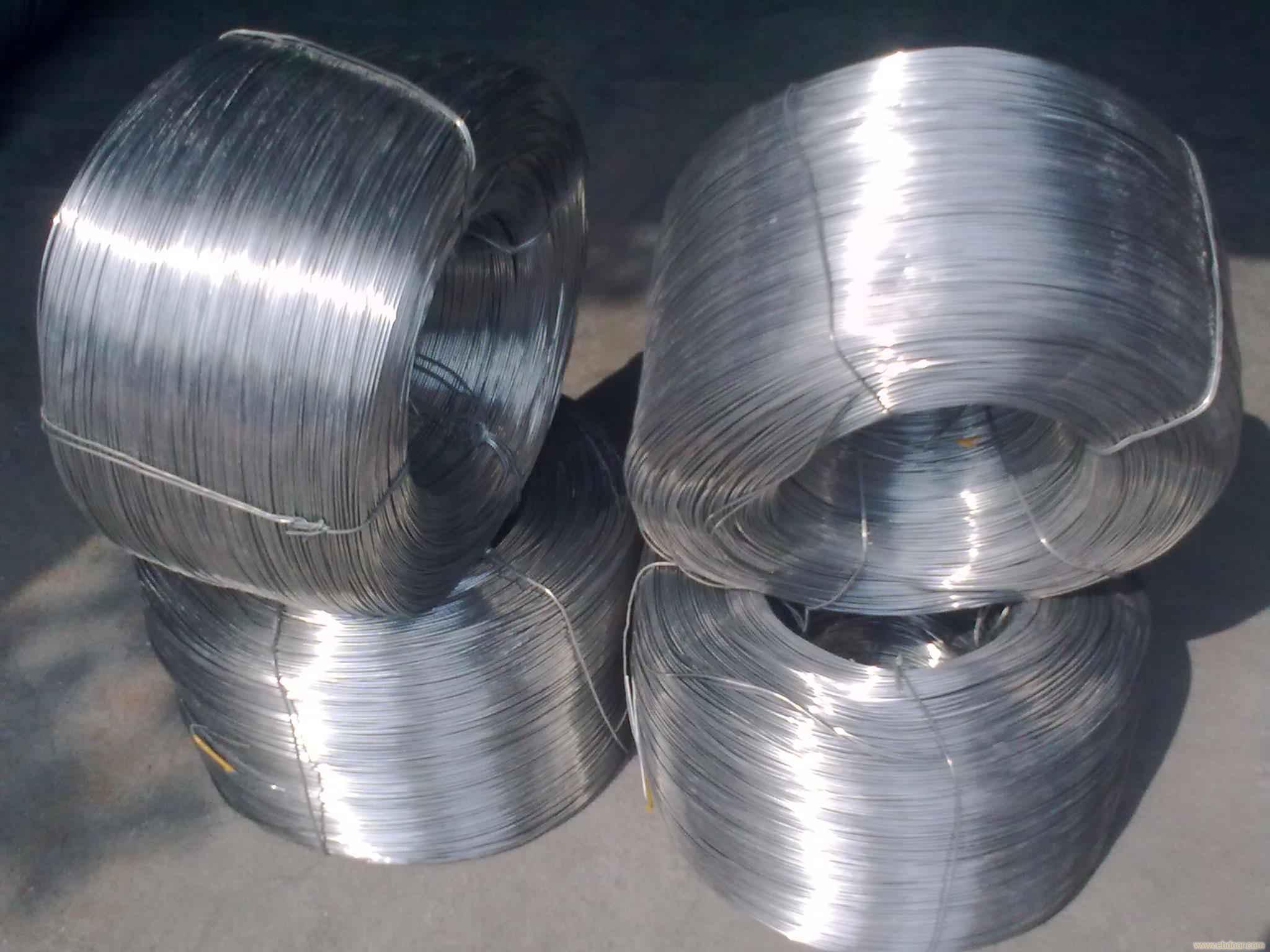
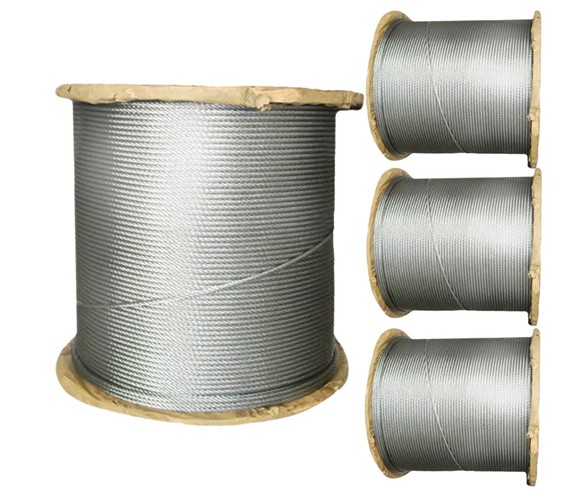
- Q: Can stainless steel wire be used for wire harnesses?
- Wire harnesses can indeed utilize stainless steel wire. Stainless steel wire possesses attributes such as durability, strength, and resistance to corrosion, rendering it suitable for a range of applications, including wire harnesses. These wire harnesses are employed in diverse industries like automotive, aerospace, and telecommunications to organize and safeguard electrical wires. The mechanical strength of stainless steel wire is exceptional, allowing it to endure high temperatures, thereby making it an ideal choice for wire harnesses that may encounter harsh environments or necessitate long-term durability. Additionally, stainless steel wire exhibits good electrical conductivity, facilitating efficient transmission of electrical signals within the wire harness. In conclusion, stainless steel wire is a versatile and dependable alternative for wire harnesses, offering durability, strength, resistance to corrosion, and good electrical conductivity.
- Q: What are the different types of stainless steel wire electrodes?
- There are several different types of stainless steel wire electrodes, including types 308, 309, and 316. These electrodes are distinguished by their chemical compositions, which determine their specific properties and suitability for different applications.
- Q: Can stainless steel wire baskets be used for food storage?
- Yes, stainless steel wire baskets can be used for food storage. Stainless steel is a safe and hygienic material that is resistant to rust and corrosion, making it suitable for storing various types of food items. The wire construction allows for proper ventilation, preventing the buildup of moisture and keeping the food fresh. It is important to ensure that the baskets are clean and free from any contaminants before using them for food storage.
- Q: What type of welding machine is needed for 0.3 mm thick stainless steel welding? Hand welding. Do you need a wire feeder?
- The recommended Christie WSE-200P inverter AC / DC pulse argon arc welding. The price is about 2800 yuan. Prices vary from place to place.
- Q: Can stainless steel wire be used in food processing industries?
- Yes, stainless steel wire can be used in food processing industries. Stainless steel is widely used in food processing due to its excellent corrosion resistance, durability, and hygienic properties. It is commonly utilized for various applications such as food sorting, packaging, conveyor belts, screens, and other equipment that come into direct contact with food. Additionally, stainless steel is easy to clean and does not react with food, making it a suitable choice for maintaining sanitary conditions in food processing environments.
- Q: What are the common uses of stainless steel wire in the textile industry?
- Stainless steel wire has several common uses in the textile industry due to its unique properties. One of the main uses of stainless steel wire in textiles is for reinforcement purposes. It is often used to strengthen and provide structure to various textile products such as belts, ropes, and cables. The high strength and durability of stainless steel wire make it ideal for applications where the textile material needs to withstand heavy loads or tension. Another common use of stainless steel wire in the textile industry is for conducting electricity. Stainless steel wire can be woven into fabrics or used as a component in electrical cables to provide conductivity. This is particularly important in applications where static electricity needs to be dissipated, such as in clean rooms or manufacturing facilities. Additionally, stainless steel wire is often employed in the production of mesh screens and sieves used in textile manufacturing processes. These screens help in filtering and separating materials during various stages of production, ensuring the quality and consistency of the final textile products. Moreover, stainless steel wire is used in the production of textile machinery and equipment. It is utilized in the construction of components such as looms, needles, and guides, which play a crucial role in the manufacturing process. The corrosion resistance of stainless steel wire is an advantageous factor in ensuring the longevity and reliability of these machinery parts. In summary, stainless steel wire finds common uses in the textile industry for reinforcement, electrical conductivity, filtration, and machinery construction. Its strength, durability, and corrosion resistance make it a valuable material in various textile applications, contributing to the overall quality and performance of textile products.
- Q: What are the different types of stainless steel wire rope ferrules?
- There are several different types of stainless steel wire rope ferrules, including oval ferrules, hourglass ferrules, and stop ferrules. Oval ferrules have a rounded shape and are commonly used for general purpose applications. Hourglass ferrules have a tapered shape and are often used for high load applications. Stop ferrules have a cylindrical shape with a lip at one end and are typically used for creating loops or stops in wire rope.
- Q: What's the meaning of the 3 Series 4 series stainless steel wire?
- It's the 304 series304 is a versatile stainless steel which is widely used in the manufacture of equipment and parts requiring good overall performance (corrosion resistance and formability). In order to maintain the inherent corrosion resistance of stainless steel, steel must contain more than 16% chromium, more than 8% of the nickel content. 304 stainless steel is a brand of stainless steel produced according to the ASTM standard in the United states. 304, equivalent to our 06Cr18Ni9 [according to GB/T 20878-2007 has been changed to 06Cr19Ni10] stainless steel.
- Q: What are the different methods of cutting stainless steel wire?
- There are multiple techniques utilized in the cutting of stainless steel wire, each possessing its own advantages and limitations. 1. Wire Cutters: The most prevalent approach to cutting stainless steel wire involves the use of wire cutters. These handheld tools contain sharp blades capable of effortlessly slicing through the wire. They are reasonably priced and suitable for various wire gauges, both small and large. However, they may not be suitable for exceedingly thick or hardened stainless steel wires. 2. Metal Shears: Metal shears are also frequently employed for cutting stainless steel wire. These tools feature elongated blades specifically designed for cutting metal with ease. Metal shears can handle thicker and harder stainless steel wires in comparison to wire cutters. Nevertheless, they may be costlier and require additional force to operate. 3. Angle Grinder: Another option is utilizing an angle grinder equipped with a cutting disc to cut stainless steel wire. This method is suitable for thicker wires and yields a clean and precise cut. However, angle grinders tend to be expensive and require the implementation of proper safety precautions, such as wearing protective goggles and gloves. 4. Laser Cutting: Laser cutting represents a highly precise and efficient technique for cutting stainless steel wire. It employs a concentrated laser beam to melt and vaporize the material, resulting in a clean and accurate cut. Laser cutting is suitable for both thin and thick wires and can effectively cut through hardened stainless steel. However, this method necessitates specialized equipment and is primarily utilized in industrial settings. 5. Waterjet Cutting: Waterjet cutting is an alternative precise method for cutting stainless steel wire. It utilizes a high-pressure jet of water mixed with an abrasive substance to cut through the wire. Waterjet cutting is suitable for various wire thicknesses and produces a smooth and burr-free cut. However, it also requires specialized equipment and is commonly employed in industrial applications. In conclusion, the selection of the appropriate method for cutting stainless steel wire depends on factors such as wire thickness, hardness, precision requirements, and the availability of suitable equipment. It is imperative to choose the appropriate technique based on these factors to ensure a clean and accurate cut.
- Q: What are the different types of stainless steel wire ropes used in aerospace industries?
- There are several types of stainless steel wire ropes used in aerospace industries, including 1x19, 7x7, and 7x19 constructions. These constructions refer to the number of strands and the number of wires per strand. Each type has its own specific characteristics and is used for different purposes in aerospace applications.
Send your message to us
Stainless Steel Wire
- Loading Port:
- China Main Port
- Payment Terms:
- TT or LC
- Min Order Qty:
- 1 Ton m.t.
- Supply Capability:
- 2000 Tons Per Month m.t./month
OKorder Service Pledge
OKorder Financial Service
Similar products
Hot products
Hot Searches
Related keywords
